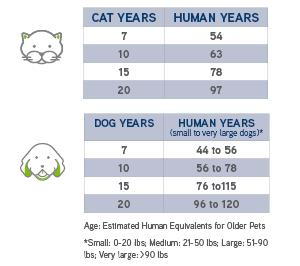SENIOR PETS

- posted: Mar. 17, 2021
Our pets are living longer, healthier lives now because of advances in veterinary medicine and pet care. As they get older, however, they require extra care and attention. A thorough physical examination by one of our veterinarians is recommended at least twice yearly. The earlier we can detect health issues in your pet means an improved chance of a longer, healthier, and happier life for your pet.
Common problems in Senior pets:
- heart, kidney or liver disease
- arthritis
- cataracts
- hearing difficulties/deafness
- diabetes
- cancer
- changes in behavior related to all of the above
It is very important to pay attention to behavioral changes in your pet in order to assist in detecting and treating diseases before they become life threatening. These behavioral changes may be clues to a change in your pet’s health as they age.
Behavioral changes to watch for and report to your veterinarian:
- increased reaction to sound
- increased barking or crying
- confusion, disorientation, wandering
- decreased interaction with humans or other pets
- increased irritability or anxiety
- having accidents in the house
- decreased grooming
- coughing &/or difficulty breathing
- stiffness – difficulty sitting, standing or climbing stairs
- decreased activity
- limping
- difficulty eating
- sudden change in weight
- increased water intake
Here are some links for more information on Senior Pets and Senior Pet Care.
At this point you’re probably wondering, at what age is my pet considered a senior?
Generally, cats and small dogs are considered a senior at approximately 7 years of age. Large breed dogs are considered a senior at 5-6 years of age. Large breed dogs tend to have a shorter lifespan than small dogs. We all like to think of our pet’s age in human years, which is not a simple calculation. Your pet’s age, health, weight, and breed are all factors in determining your pet’s age in human years. Following is a sample chart from the AVMA to give you an approximation of your pet’s age in human years.
Weight and diet can also play an important role in our pet’s health as they age.
Your pets nutritional needs will change as they age. Some diseases that senior pets can develop, such as kidney disease, require an immediate change in diet. Nutritional needs also change to accommodate changes in metabolism, digestion and aging. That is why it is important to feed your senior pet senior food. Your veterinarian may also recommend additional supplements to combat conditions your pet may be at risk of developing, such as arthritis. Changes in metabolism can effect your pets weight, which can effect your pets overall health. As pet parents, one of the more common pitfalls is to shower our pets with love by means of a little extra at meal time or with treats throughout the day. Instead, it’s important to indulge them with affection and playtime, not food! Excess weight is known to increase your pet’s risk of disease. In general, excess weight puts more stress on their body and organs, such as; their heart has to work harder, lungs have to work harder and there is more wear to the joints. There is also an increased risk of diabetes. Ask your veterinarian for more information and guidelines for obtaining and/or sustaining your pet’s optimal weight and nutrition for a longer, healthier, and happier life.
Here are some links for more information on nutrition and senior food for dogs. This link has more information on cat nutrition.
Remember, none of the above ailments can be detected without routine physical examinations and lab-work done by your trusted veterinarian. Providing your senior pet with twice yearly wellness exams is the best gift of love that you can give them. Call us today, and we will help you keep your furry family member happy and healthy!

